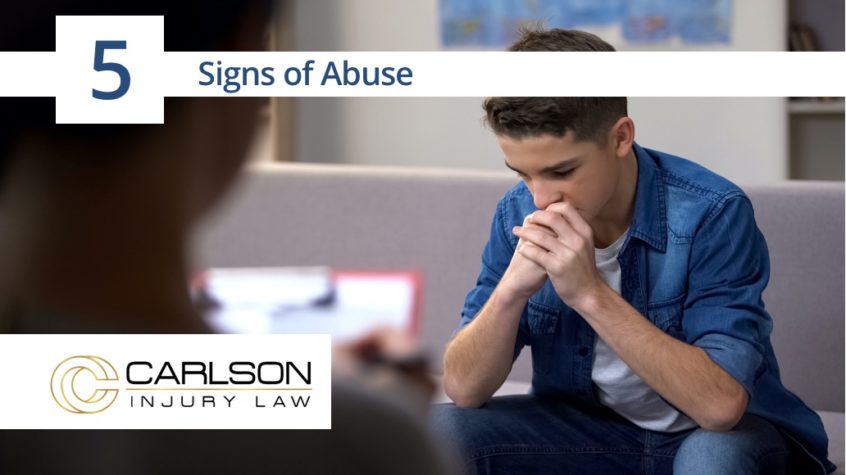If you are in the unfortunate situation of having to send your child away to a residential treatment center, you expect your child to be safe and well taken care of. This is not always the case, youth care abuse is a very real and terrifying experience, and can have a lasting impact on their long-term mental health. Children may not always be able or allowed to tell you exactly what is happening in their youth rehabilitation programs. We want to give you an idea of signs to look for in your child.
5 Signs of Abuse in Residential Treatment Centers for Youth
1. Your child is not contacting you regularly.
Regular dialogue with your child is an important part of their recovery. In safe and secure youth rehabilitation programs open communication is a key component for treatment. Children should not have to be monitored during this contact, as they should be comfortable in telling you anything they feel without being nervous about punishment or retaliation.
2. The program tells you not to believe your child.
Forging a good relationship with your child is obviously important to you. If the residential treatment facility is encouraging you to ignore your child’s complaints, there may be more to look into. Parents should instead be encouraged to support and listen to anything the youth has to say. You may hear that the child is “attempting to manipulate” you, which should send up a red flag.
3. Your child complains of unusual health problems.
You know your child better than anyone else. If they don’t regularly get stomach aches or headaches, but suddenly start complaining about them regularly during your contact, your child may be experiencing abuse. Children have been found dehydrated and hungry in some of these treatment centers. The facility should also be contacting you and a nurse if the child is in distress. If this isn’t happening, your child is not safe.
4. Your child’s grades have gone down.
You want to be sure that your child is growing and benefiting from this treatment. If their grades are slipping, they are not getting the support they need in the program. Children should be helped to succeed in school work. When a child is preoccupied with anxiety and fear, they may have a much harder time focusing on their academic performance.
5. Your child has come home with some noticeable differences in behavior.
If your child returns home from the program with some negative new behaviors, this is a possible sign of abuse. Children should be treated with care and compassion. Some facilities may use more extreme versions of punishment such as restraint, humiliation, forced labor or seclusion. This can result in the child seeming more hyperactive, angry, hostile or aggressive with you. These may be signs of underlying anxiety or fear because of things they may have experienced in treatment.
What To Do If You Suspect Your Child Has Been Abused
If you notice any of the signs listed above, we are here to help you get the justice you deserve. We have helped many parents and children stand up against multi-million dollar corporations. We are here to guide you through the difficult process. No company should be allowed to abuse your child and get away with it. Please call us at (801) 845-4577 to speak with us directly. You can also email us at mark.carlson@carlsoninjuryfirm.com .


